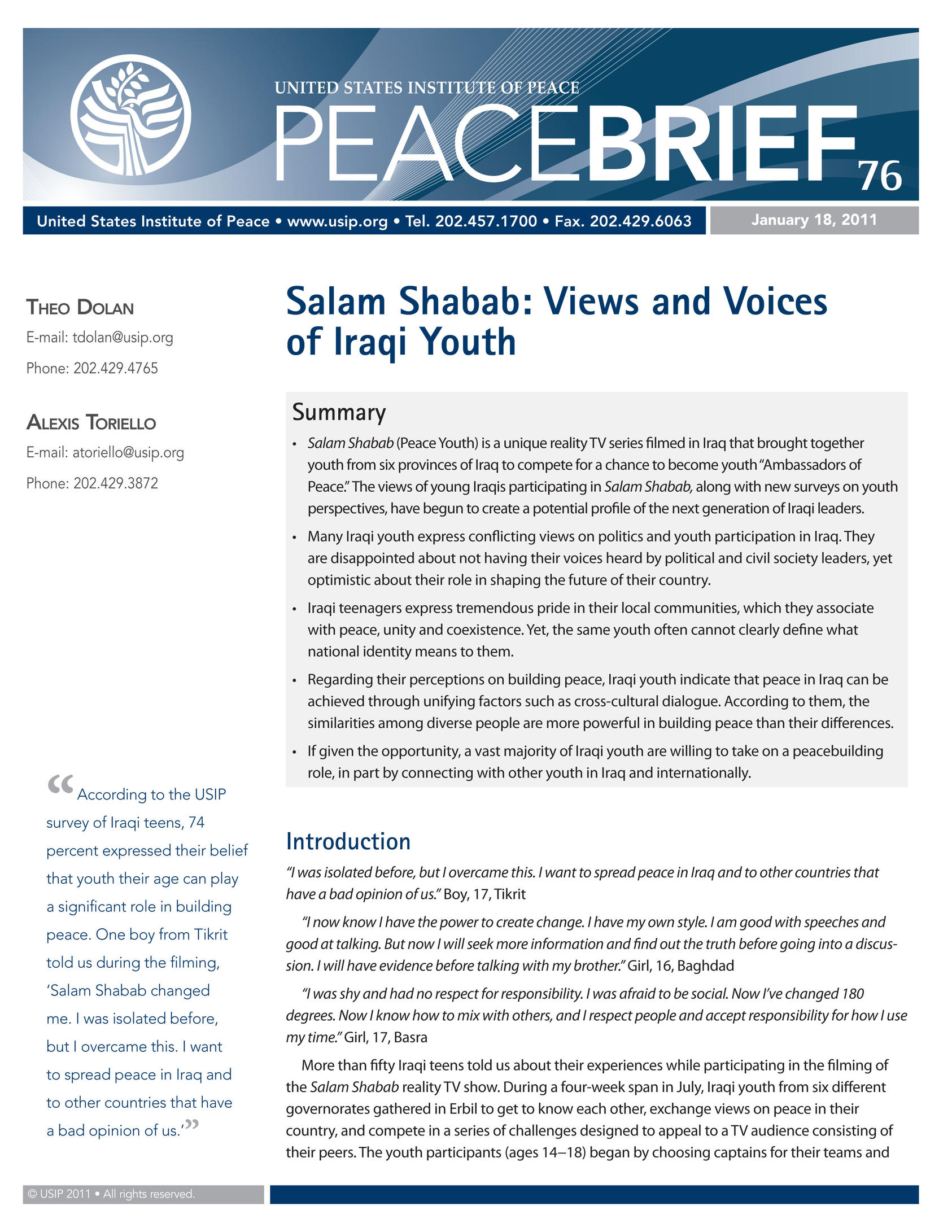Salam Shabab: Views and Voices of Iraqi Youth
Salam Shabab (Peace Youth) is a unique reality TV series filmed in Iraq that brought together youth from six provinces of Iraq to compete for a chance to become youth “Ambassadors of Peace.” The views of young Iraqis participating in Salam Shabab, along with new surveys on youth perspectives, have begun to create a potential profile of the next generation of Iraqi leaders.

Summary
- Salam Shabab (Peace Youth) is a unique reality TV series filmed in Iraq that brought together youth from six provinces of Iraq to compete for a chance to become youth “Ambassadors of Peace.” The views of young Iraqis participating in Salam Shabab, along with new surveys on youth perspectives, have begun to create a potential profile of the next generation of Iraqi leaders.
- Many Iraqi youth express conflicting views on politics and youth participation in Iraq. They are disappointed about not having their voices heard by political and civil society leaders, yet optimistic about their role in shaping the future of their country.
- Iraqi teenagers express tremendous pride in their local communities, which they associate with peace, unity and coexistence. Yet, the same youth often cannot clearly define what national identity means to them.
- Regarding their perceptions on building peace, Iraqi youth indicate that peace in Iraq can be achieved through unifying factors such as cross-cultural dialogue. According to them, the similarities among diverse people are more powerful in building peace than their differences.
- If given the opportunity, a vast majority of Iraqi youth are willing to take on a peacebuilding role, in part by connecting with other youth in Iraq and internationally.
About This Brief
This report was written by Theo Dolan, Senior Program Officer, and Alexis Toriello, Research Assistant, at the Center of Innovation for Media, Conflict and Peacebuilding. It is a unique collection of Iraqi youth perspectives based on recent research as well as firsthand views of Iraqi youth participating in the filming of the Salam Shabab (Peace Youth) reality TV series.



